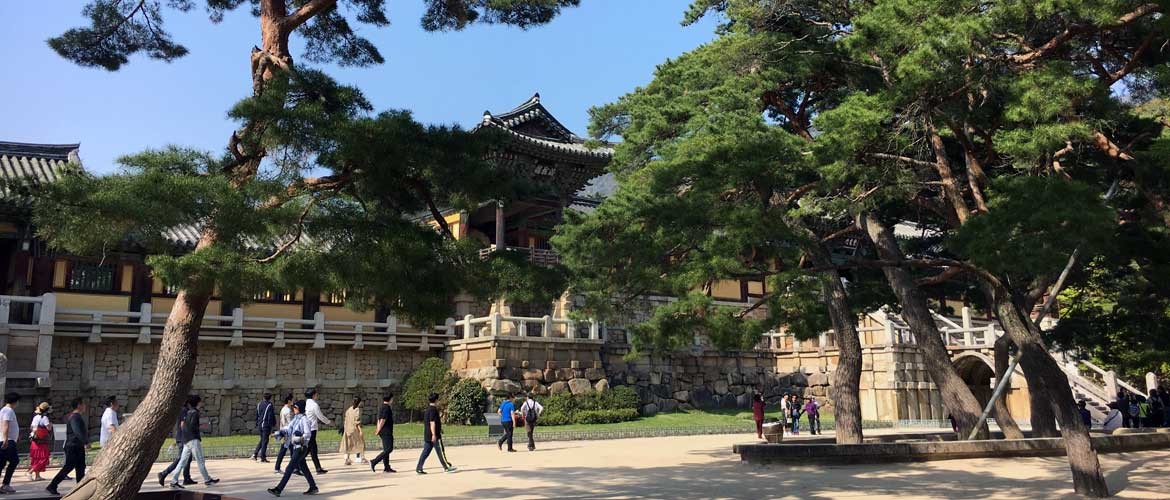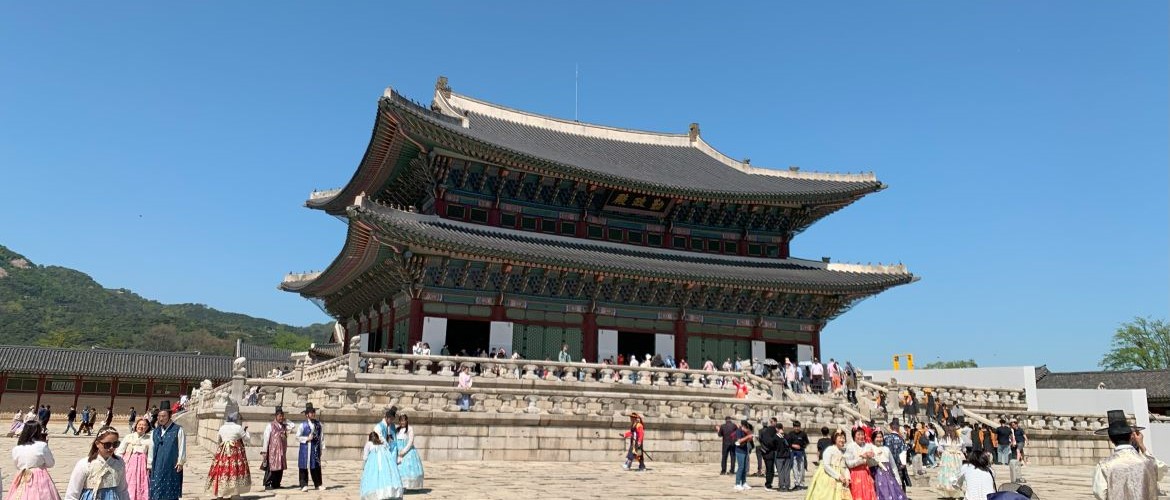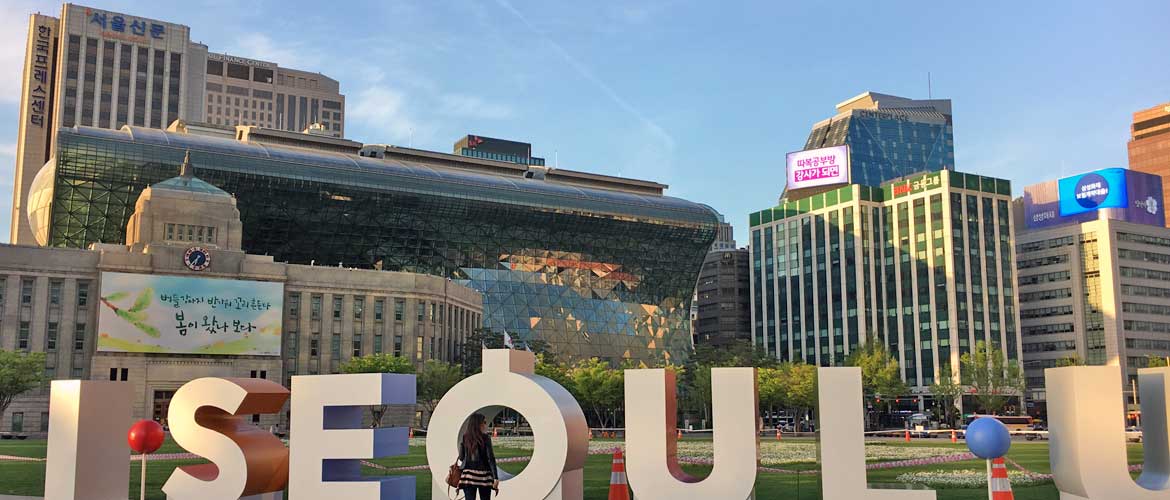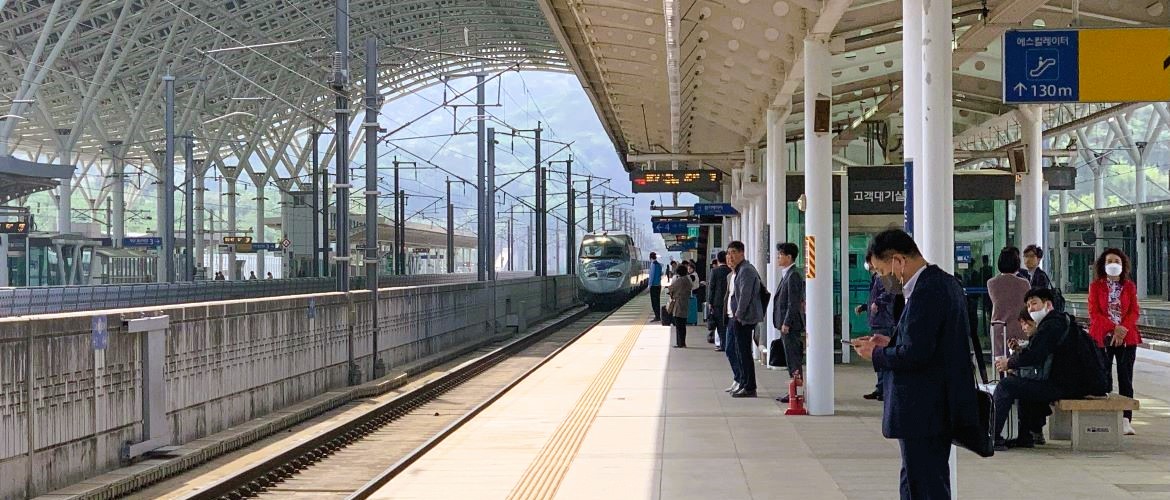
Are you looking for South Korea tours from Canada? If so, you’ve just found the right tour company in Laurus Travel. We are a Canadian tour company based in Vancouver with satisfied customers from all over Canada. Our luxury South Korea tours conducted by outstanding local guides hold special appeal to travellers keen on history, culture and fine food.
We currently have two South Korea tours packages available. They focus on South Korea only. In addition, we offer a number of tour packages combining South Korea with one or two of its neighbouring countries (Japan & China). The 10-day Best of South Korea includes Seoul, Jeju Island, Busan, Gyeongju. The 8-day Essential South Korea visits Seoul, Busan, Gyeongju and Yandong Folk Village. Both tours begin and end in Seoul, capital of South Korea.
Those wishing to combine South Korea with Japan may want to check out the 16-day Best of Japan and South Korea. The premium small-group tour starts in Tokyo and ends in Seoul. In between, you’ll visit Mt. Fuji, Hakone, Kanazawa, Shirakawa-go, Takayama, Kyoto, Nara, Osaka, Busan, and Gyeongju – the ancient capital of the Silla kingdom that existed between 57 BCE – 935 CE.

South Korea Tours from Canada – recommended itinerary
10-day Best of South Korea
Seoul – Jeju Island – Busan – Gyeongju – Seoul
Embark on an enchanting journey through the heart of South Korea and immerse yourself in the rich tapestry of Korean culture and landscapes, where ancient traditions blend harmoniously with modern marvels. From the bustling streets of Seoul to the serene beauty of Jeju Island, each day promises a new adventure, filled with captivating sights and immersive experiences.
Important Features
- Small group size (average 15, maximum 20)
- Expert professional guides
- Luxury hotel accommodations
- Quality local and Western cuisines
- Korean BBQ farewell dinner in a high-end restaurant
- Excursion to the Demilitarized Zone near Seoul

Meal Code: B = breakfast / L = lunch / D = dinner
Day 1/Wed: Departing for Seoul
Your South Korea vacation begins with international flight departing from a city of your choice.
Day 2/Thu: Arrival in Seoul
Upon arrival, transfer to the centrally located hotel on your own, which can be easily done by taxi or airport limousine bus or airport express train. The 50 km cab ride from Incheon International Airport costs between 70,000 and 100,000 Korean Won ($56-$80 US) including expressway toll charge. The Airport Railroad Express train travel between the airport and Seoul Station costs 9,000 Won ($7 US); from Seoul Station, taking a cab to the hotel costs just a few dollars. The deluxe limousine bus from the airport to the hotel costing 18,000 won ($14 US) may be an ideal choice depending on your flight schedule.
Day 3/Fri: Seoul – Jeju Island (B/L)
Seoul, the capital of South Korea, is a huge metropolis where modern skyscrapers, high-tech subways and pop culture meet Buddhist temples, palaces and street markets.
Our sightseeing today includes Gyeongbok Palace and Bukchon Hanok Village (traditional residential area on a hill inside the city).
Late afternoon flight to Jeju City, capital of Jeju Island.
[ read more ]

South Korea Tours from Canada – Q&A
What’s the best time to visit South Korea?
Korea has four distinct seasons with spring (April – June) and autumn (late September-November) being the best months for visitors. Spring flowers in April and May and autumn leaves in late October and early November will intoxicate nature lovers.
Korean winter is cold while summer hot and humid. That said, climate on Jeju Island can be very mild in winter, which is why many domestic and foreign vacationers go there in the winter.
Do I need a visa to enter South Korea?
Tourists from Canada, the U.S., the UK, Australia and New Zealand can stay in South Korea visa-free for up to 90 days.
How do we get around while on your tour?
You’ll get around by chartered luxury vehicles and bullet train.
Where do we eat when meals are not included?
You’ll get reliable recommendations from the local guides. The restaurants recommended will be based on your preference and budget. It is very easy to find good and affordable restaurants across South Korea.
What is the typical mix of your travellers?
On most of our South Korea tours, Canadians and Americans make up the majority of our guests with the rest mainly coming from the UK and Australia.
The average age is around 60. You can be in your 80’s as long as you are in good shape and require no special assistance. Our tours are pretty active and wo do not provide luggage service. This requirement on fitness is always thoroughly communicated to potential customers before they sign to ensure they can enjoy themselves without hindering the pace of group.
Can Laurus Travel arrange our international flights?
Absolutely! We are particularly proud of our record in tracking down the best business and premium economy class deals.
Are there direct flights between Canada and South Korea?
Korean Air and Air Canada both offer daily non-stop flights between Vancouver and Seoul. Korean Air has two while Air Canada has one.
Between Toronto and Seoul, Korea Air has one direct flight in both directions every day. Air Canada offers flights per week as of January 2025.
Sometimes, the cost can be much lower if you break up the long journey with a stop in Tokyo or Beijing.

